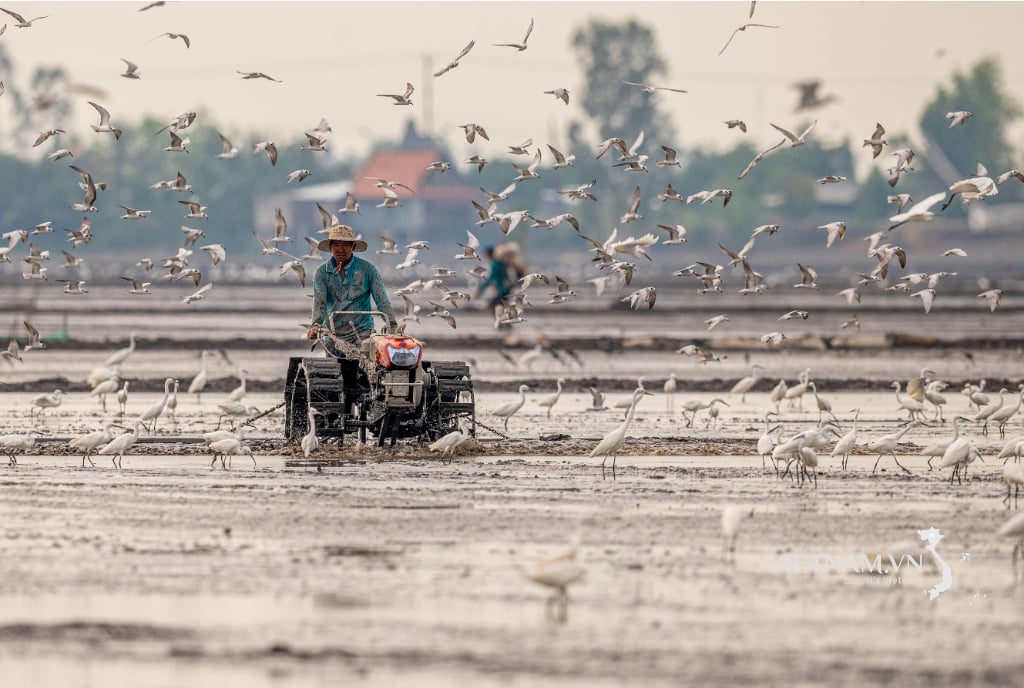Child exploitation scams on the rise
Student P, 14 years old ( Bac Giang ) in early 2023 received a phone call from a stranger introducing him to a prize-winning entertainment unit. Initially, he guessed the game and gradually accumulated points with the initial reward being a lipstick. Later, when the subject instructed him to transfer money and threatened to post sensitive information, student P became suspicious and called the National Child Protection Hotline 111 (Call Center 111) for advice. From what student P shared with Call Center 111, it can be seen that the disclosure of information from class names, school names and even friends can be from sharing information on social networks.
“Through research on cases from the 111 hotline, it can be seen that scammers carefully research their victims by collecting information beforehand. When calling or chatting with victims, they understand their psychology very well to talk and aim to scam them,” said Ms. Nguyen Thi Nga, Deputy Director of the Department of Children (Ministry of Labor, War Invalids and Social Affairs).
Regarding the recent recent cases of scammers calling parents to inform them that their children are in an emergency at the hospital and need to transfer money for urgent surgery, according to Ms. Nguyen Thi Nga, these cases are taking advantage of children to scam them, but the question is where do scammers get the children's information to call their parents? That is partly due to the unintentional sharing of certificates, transcripts, or pictures of parents on social networks.
Regarding the issue of collecting children's data, Ms. Dinh Thi Nhu Hoa, Department of Information Security (ATTT) - Ministry of Information and Communications said: "Every time at the end of the semester, the end of the school year, parents compete to post their children's report cards, certificates of merit, certificates of merit... on Facebook without covering personal information, unintentionally creating a loophole for scammers to commit fraud."
The next reason for information leakage, Ms. Dinh Thi Nhu Hoa said, is that there are many websites that collect information but do not have commitments with third parties, leading to leakage by the data manager or by third parties. With the increasing situation of online fraud, many fraudulent websites are set up, if the user is a parent, during the usage process, they may have entered personal information.
According to expert Bui Duy Thanh, representative of World Vision Vietnam, stealing children's personal information is only the first step, after which bad guys will take advantage of the information obtained to continue to abuse and bully children.
Sharing the impact of harmful information on the internet on children, Mr. Do Duong Hien, representative of Childfund Vietnam said: During the process of working and conducting assessment surveys, there is clear evidence of the psychological impact on children when exposed to inappropriate information. There are figures showing that 20% of children feel scared and disgusted when watching clips of violence and sexual acts within 1 month after accessing the information.
According to Mr. Hien, an international report in 2022 said that there were 1 million reports from technology companies from Vietnam related to images of child sexual abuse online, an increase of 20% compared to 2021. The number of abusive images uploaded by users in Vietnam.
From the business perspective, according to Mr. Nguyen Anh Vu, General Director of Coc Coc search platform, fraud mechanisms focus on the human factor. Fraudsters create trust so that the scammed person does as requested. What is new is that scammers use children's information to scam and make money. There are two main factors: scammers focus on the easiest channels, which are phone, SMS or online channels.
“Children’s information in particular and personal information shared online is very accessible. It is very easy to search for the keyword “buy student data” on your phone,” Mr. Nguyen Anh Vu warned.
Information security awareness from parents
Regarding the issue of protecting children's safety online, Ms. Dinh Thi Nhu Hoa said: "The most common mistake parents make is that pornographic content is only available on pornographic websites. But in fact, this content is everywhere and children can easily access it. According to survey data, 23% of children said they accidentally saw sensitive images or videos online, possibly from advertising content or social networks, or from people sending links to pornographic websites through comments. Therefore, blocking pornographic websites is not enough and ineffective, children need a more powerful and effective tool with the ability to filter on any website at any time. However, current tools are limited to image and text processing, because video processing requires complex technology, there are almost no filtering tools to support videos, especially for browsers and applications. Parents should consider showing children videos from reputable sources like YouTube Kids, while also using content filtering tools to maximize child protection.”
According to Ms. Hoa, the average age of children owning a phone is 9, while the average age when children are informed about online safety is 13, so there is a gap in awareness, knowledge, and skills for children to protect themselves during this period.
According to Mr. Nguyen Anh Vu, “Search engines have also developed tools to protect users. For example, the ability to search safely to filter out inappropriate content; can update fraudulent websites that are dangerous to users. We also have plans to launch a separate browser for children. But the most important factor is that parents must pay attention to what their children do online. Children under 13 years old should not use social networks and parents must monitor children under 16 years old online. Parents also need to have regulations so that they can explore the Internet with their children but also ensure safety.”
“Regarding the age at which children use social networks, Facebook founder Mark Zuckerberg once declared that he would not let his children use social networks before they turn 16. That is something that parents and management agencies should also pay attention to,” said Mr. Nguyen Anh Vu.
Ms. Nguyen Thi Nga, Deputy Director of the Department of Children, said: “The legal system in Vietnam up to now has regulations on children's privacy and confidentiality. Regulations need to be transformed into knowledge and skills for children and parents. Prevention is the most important work. It is very necessary to have real concern from parents and children in the online environment. If children are deceived through information disclosure on the internet, parents and teachers must always be there to accompany their children.”
According to Ms. Dinh Thi Nhu Hoa, the Ministry of Information and Communications has added regulations on handling violations of personal information collection. The fine can be up to 40 million - 60 million VND. What is needed is to raise awareness of organizations, businesses and individuals. The Ministry of Information and Communications is also evaluating digital products and services to protect and support children, including evaluating two groups of products including child protection; supporting children in learning, playing and entertaining. In addition to the legal corridor on inspection and examination, raising awareness of law compliance of businesses and individuals in data protection, especially personal data.
From the perspective of the Ministry of Education and Training, Mr. Tran Quang Dat, Director of the Department of Political Education and Student Affairs, said: "In the 2018 general education program, information technology is a compulsory subject. However, the duration of the subject is limited and only basic knowledge is imparted, so the prevention of bad information is only integrated. The Ministry of Education and Training advocates organizing forums to train skills to handle harmful issues on the Internet."
Source



























![[Photo] Central Propaganda and Mass Mobilization Department meets with exemplary journalists](https://vphoto.vietnam.vn/thumb/1200x675/vietnam/resource/IMAGE/2025/6/21/9509840458074c03a5831541450d39f8)
























![[Maritime News] Wan Hai Lines invests $150 million to buy 48,000 containers](https://vphoto.vietnam.vn/thumb/402x226/vietnam/resource/IMAGE/2025/6/20/c945a62aff624b4bb5c25e67e9bcc1cb)








































Comment (0)